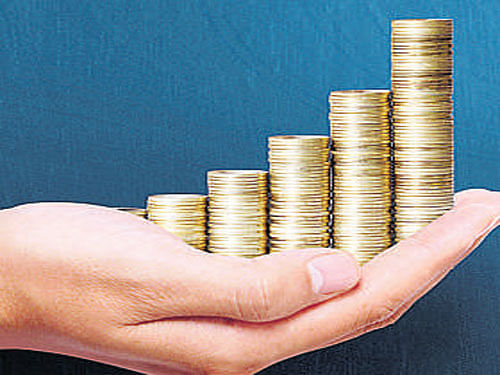The Indian billionaires' wealth crossed the USD 400 billion (Rs 28,000 billion) mark for the first time in 2018, marking the single largest increase since the 2008 financial crisis, as their fortunes grew by around Rs 2,200 crore a day, a report said on Monday.
The 'Inequality Report: Public Good or Private Wealth?' by Oxfam released at the World Economic Forum in Davos said India added 18 new billionaires, taking the total to 119, and their total wealth was higher than the country's 2018-19 Budget, which was Rs 24,422 billion.
The report highlighted India's dismal spending in healthcare and education among others. In a press statement accompanying the report, Oxfam said, India's combined revenue and capital expenditure of the Centre and states for medical and public health, sanitation and water supply is Rs 2,08,166 crore, less than the wealth of India’s richest billionaire Mukesh Ambani at Rs 2,80,700 crore."
Similar to the global scenario, the report said wealth inequality was "on the rise" in India too and it "threatens" the social fabric. "In the last year, the total wealth of India has increased by USD 151 billion (Rs 10,591 billion). Wealth of top 1% increased by 39% whereas wealth of bottom 50% increased a dismal 3%," it said.
The report claimed that India's top 10% of the population holds 77.4% of the total national wealth. The wealth of top nine billionaires is equivalent to the wealth of the bottom 50% of the population.
"The contrast is even sharper for the top 1% that holds 51.53% of the national wealth. The bottom 60%, the majority of the population, own merely 4.8% of the national wealth...High levels of wealth disparity subvert democracy," it said.
On billionaires, it said their fortune grew by Rs 2,200 crore a day while the poorest decile remained in debt since 2004. The billionaires' combined wealth rose from USD 325.5 billion (Rs 22,725 billion) in 2017 to USD 440.1 billion (Rs 30,807 billion) in 2018, which the report said was the "single largest annual increase since the 2008 Global Financial Crisis". The increase in their wealth in one year alone was Rs 8,022 billion, which was equivalent to the combined (Centre and States) direct tax revenue.
Highlighting under-funding of public services, the report said the public spending on health continues to hover around 1.3% of the GDP while it fails to spend what is necessary to realise the minimal norms set by the Right to Education Act.
On the lower spending in education, the report indicated that it would end up socially segregating children from different economic strata and leading to the rich and poor students "growing up in parallel universes". "This creates an educational system stratified by social class with education quality determined by how much a family can pay," it said.
The report said that India spends around Rs 1,112 per person on public health per capita every year, which "less than the cost of a single consultation at the country’s top private hospitals or roughly the cost of a pizza" at many hotels.
"That comes to Rs 93 per month or Rs 3 per day. Indians, therefore, have no other choice but to spend out of pocket on health. As a result, 63 million people are pushed into poverty every year. A fifth of the ill in both rural and urban areas deny themselves treatment, 68% of patients in urban India and 57% in rural areas attributed 'financial constraints' as the main reason to take treatment without any medical advice," it said.
Deccan Herald is on WhatsApp Channels| Join now for Breaking News & Editor's Picks

